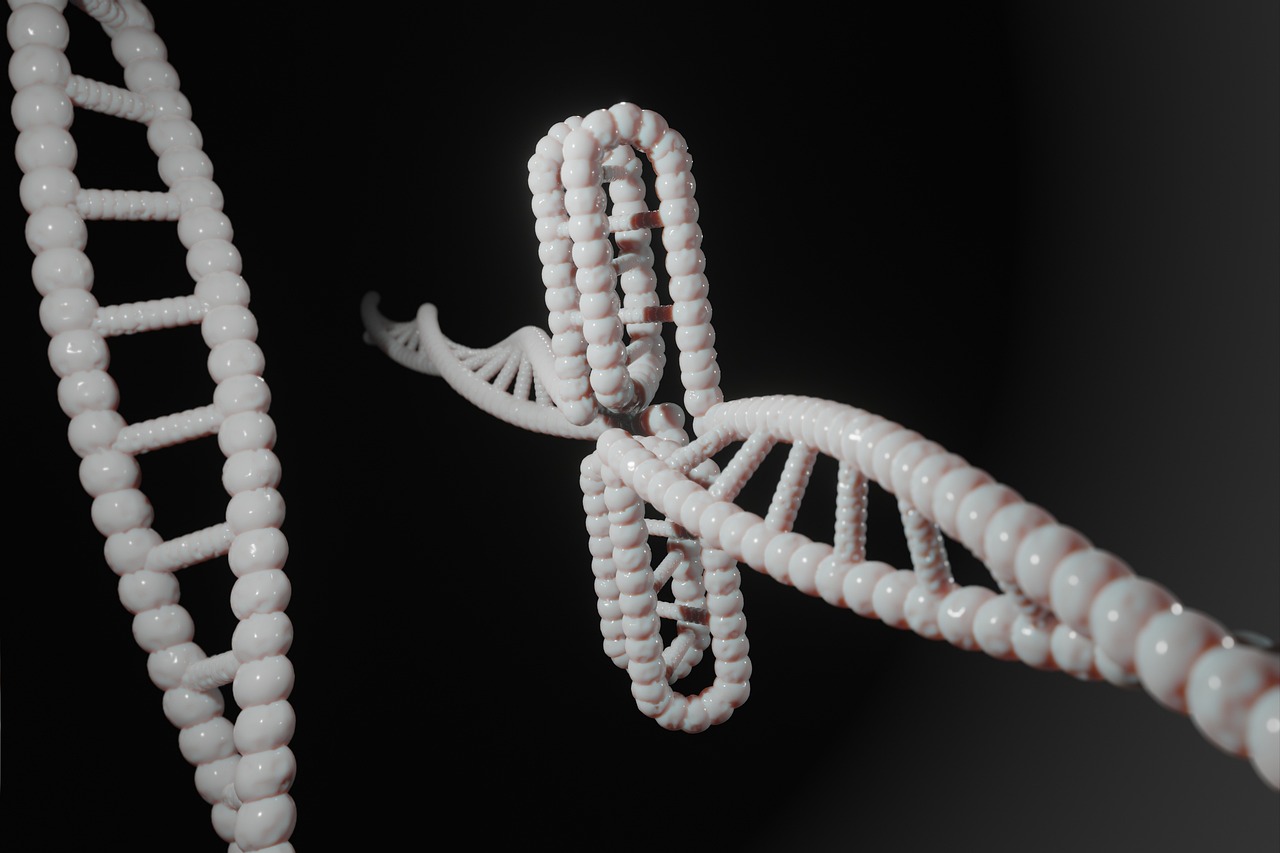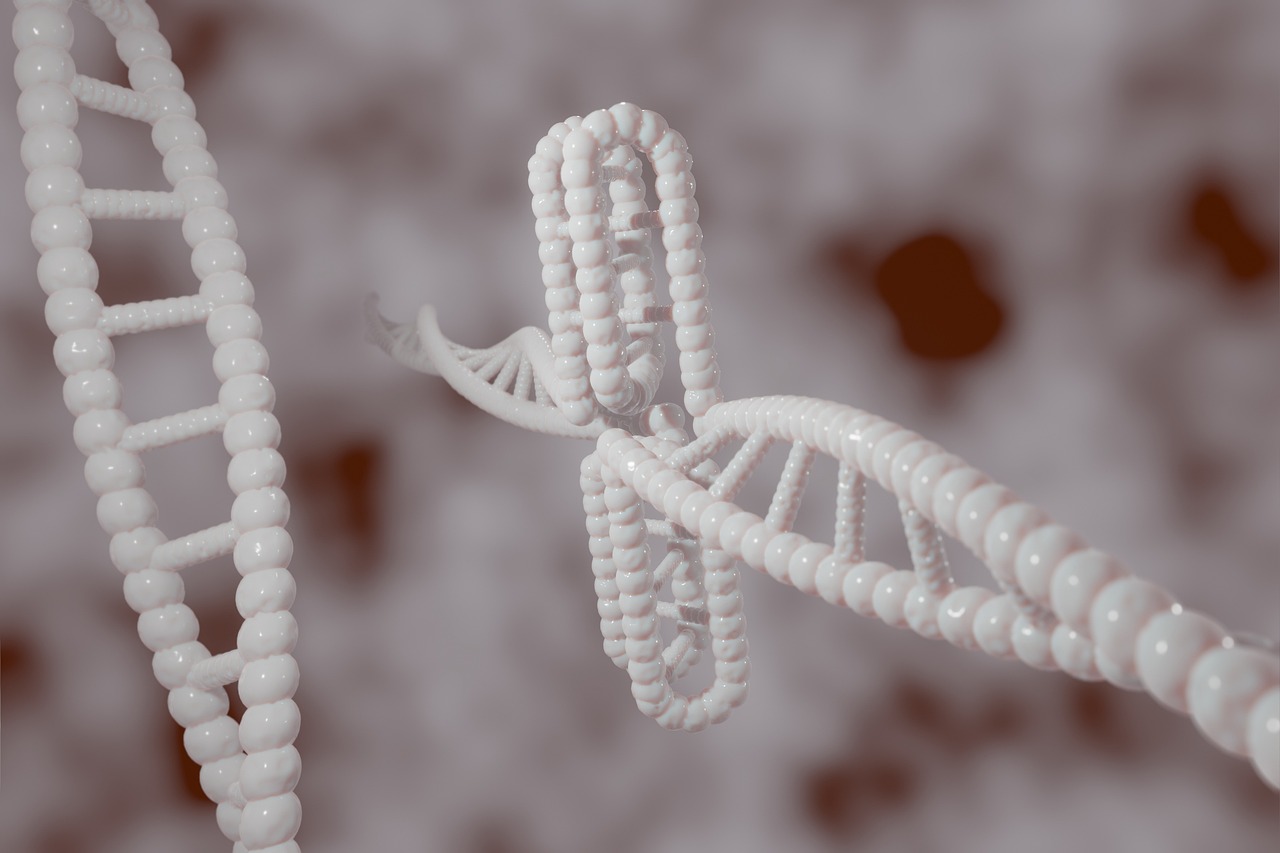The Philosophy of Epigenetics - Beyond the Central Dogma
Have you ever wondered why identical twins can have different personalities or health outcomes despite sharing the same DNA? This intriguing phenomenon is at the heart of the philosophy of epigenetics, a field that challenges the long-held belief in genetic determinism. Epigenetics explores how our environment and experiences can shape our genetic expression, suggesting that we are not merely products of our genes but rather dynamic beings influenced by our surroundings. In this article, we will dive deep into the philosophy of epigenetics, unraveling its implications for our understanding of identity, free will, and the very essence of what it means to be human.
At its core, epigenetics refers to changes in gene expression that do not involve alterations to the underlying DNA sequence. Imagine your DNA as a beautifully crafted orchestra, where each gene plays its part. Epigenetics is like the conductor, determining which instruments are heard and when. This control can be influenced by various factors, including environmental stimuli, lifestyle choices, and even emotional states. This dynamic interplay between our genes and the environment is crucial, as it highlights that our genetic potential is not fixed. Instead, it can be modified, much like a painter adjusting their brush strokes on a canvas.
The traditional view of molecular biology, known as the Central Dogma, describes a linear flow of genetic information: DNA is transcribed into RNA, which is then translated into proteins. This model suggests a straightforward relationship between our genes and the traits we express. However, epigenetics complicates this narrative, introducing a more nuanced understanding of genetic expression. It reveals that gene regulation is not merely a one-way street but rather a complex network of interactions influenced by the environment.
To appreciate the evolution of epigenetics, we must consider its historical roots. The journey began with early genetic theories that focused solely on heredity and the immutable nature of DNA. However, as scientists delved deeper into the mechanisms of gene regulation, they began to uncover the intricate layers of control that exist beyond the genetic code.
Early geneticists, like Gregor Mendel, laid the groundwork for our understanding of inheritance, but their work primarily emphasized the role of genes as fixed entities. This perspective, while revolutionary at the time, limited our understanding of how traits could be influenced by factors outside of the genetic blueprint. It wasn't until the mid-20th century that researchers began to recognize the importance of gene expression and regulation, setting the stage for the emergence of epigenetic theory.
Recent advancements in technology have unveiled the complexities of gene regulation. Techniques like DNA methylation analysis and histone modification studies have allowed scientists to observe how external factors can lead to epigenetic changes. For instance, exposure to certain chemicals or variations in diet can lead to modifications in gene expression that may affect an individual's health and behavior. These discoveries have reshaped our understanding of genetics, highlighting that our genes are not the sole determinants of our fate.
The implications of epigenetics extend beyond science, sparking profound philosophical inquiries. If our genes do not solely dictate who we are, what does that mean for our sense of identity? Are we merely products of our environment, or do we possess a degree of free will in shaping our lives? These questions challenge the traditional notions of determinism and open the door to a more nuanced understanding of human existence.
One of the most fascinating aspects of epigenetics is its emphasis on the role of environmental factors in shaping gene expression. Our lifestyle choices, nutrition, and even stress levels can leave lasting marks on our genetic makeup. For example, studies have shown that individuals who experience chronic stress may exhibit epigenetic changes that influence their mental health. This highlights the interconnectedness of our biology with our lived experiences.
Real-world examples illustrate the impact of epigenetic changes on health and behavior. For instance, a study on mice demonstrated that those exposed to a high-fat diet experienced significant epigenetic modifications, leading to obesity and related health issues. Similarly, human studies have shown that maternal nutrition during pregnancy can affect the epigenetic profiles of offspring, influencing their risk for various diseases later in life. These case studies underscore the significance of epigenetics in understanding health outcomes and behaviors.
The field of epigenetics is rapidly evolving, and its implications for medicine and ethics are profound. As we continue to unravel the complexities of gene regulation, future research may lead to innovative treatments for diseases, personalized medicine approaches, and a deeper understanding of our biological identity. However, these advancements also raise ethical questions about the potential for manipulation of gene expression and the societal implications of such technologies.
- What is epigenetics? Epigenetics refers to changes in gene expression that do not involve alterations to the DNA sequence, influenced by environmental factors.
- How does epigenetics challenge genetic determinism? It suggests that our genes are not the sole determinants of our traits and behaviors; instead, external factors can significantly influence gene expression.
- Can lifestyle choices affect my genes? Yes, factors like diet, stress, and environment can lead to epigenetic changes that may impact health and behavior.
- What are the implications of epigenetics for medicine? Understanding epigenetics may lead to new treatments, personalized medicine, and insights into disease prevention.

Understanding Epigenetics
Epigenetics is a fascinating field that delves into the complexities of gene expression without altering the underlying DNA sequence. Imagine your DNA as a cookbook filled with recipes for building and maintaining your body. Now, epigenetics can be thought of as the chef's choice of which recipes to follow, how to adjust them, and even when to cook them. This dynamic process is crucial because it helps explain why identical twins, who share the same genetic blueprint, can have different traits and health outcomes. It’s not just about the ingredients (genes) but also about how they are prepared and served (environmental influences).
At its core, epigenetics involves chemical modifications that occur on the DNA or its associated proteins, influencing how genes are turned on or off. These modifications can be influenced by a variety of factors, including environmental stimuli, lifestyle choices, and even experiences. For instance, a person's diet can lead to epigenetic changes that affect gene expression related to metabolism and health. This means that our choices can literally shape our genetic destiny, a concept that challenges the age-old belief in genetic determinism.
To better understand epigenetics, it's essential to recognize some of its key components:
- Methylation: The addition of a methyl group to DNA, which can suppress gene expression.
- Histone Modification: Changes to the proteins around which DNA is wrapped, affecting how tightly or loosely DNA is packaged and, consequently, how accessible it is for transcription.
- Non-coding RNAs: Molecules that play roles in regulating gene expression without coding for proteins.
These components interact in intricate ways, leading to a rich tapestry of gene regulation that is responsive to both internal and external cues. This interplay is what makes epigenetics so compelling—it’s a reminder that our biology is not set in stone; rather, it is a living, breathing entity that evolves with our experiences and environment.
Moreover, the implications of epigenetics extend far beyond the laboratory. They touch on critical issues in public health, personalized medicine, and even philosophy. By recognizing that our environment and choices can affect our genetic expression, we open the door to new possibilities in disease prevention and treatment. For instance, understanding epigenetics can lead to tailored therapies that consider not just genetic predispositions but also how lifestyle factors can be manipulated to improve health outcomes.
In summary, epigenetics serves as a bridge between our genetic makeup and the world around us, illustrating that we are not merely products of our genes but rather active participants in our biological narratives. As we continue to explore this captivating field, we may find ourselves questioning the very foundations of identity and inheritance.

The Central Dogma Revisited
The Central Dogma of molecular biology, famously articulated by Francis Crick in 1957, outlines the flow of genetic information from DNA to RNA and then to protein. This linear model has long been the cornerstone of our understanding of genetics, painting a picture of a one-way street where genes dictate traits and biological functions. However, the emergence of epigenetics has thrown a proverbial wrench into this well-oiled machine, introducing a more complex and dynamic narrative to gene expression.
At its core, epigenetics challenges the notion that our genetic destiny is fixed. Instead, it proposes that environmental factors—such as lifestyle choices, stressors, and nutrition—can modify gene activity without altering the underlying DNA sequence. Imagine a dimmer switch for your genes, where external influences can brighten or dim the expression of certain traits, rather than a simple on/off switch. This revelation has profound implications, suggesting that we are not merely products of our genetics but also of our environments.
To truly grasp the implications of this shift, we must consider how epigenetics redefines our understanding of genetic expression. Rather than viewing the DNA sequence as a rigid blueprint, we can think of it more like a musical score, where epigenetic modifications act as conductors, guiding the performance of various genes. These modifications can be influenced by numerous factors, including:
- Diet: Nutritional choices can lead to epigenetic changes that affect metabolism and disease susceptibility.
- Stress: Chronic stress can trigger epigenetic alterations that may predispose individuals to mental health disorders.
- Environment: Exposure to pollutants or toxins can result in epigenetic changes linked to various health conditions.
This understanding of gene expression as a malleable process rather than a fixed outcome opens up a new realm of possibilities. It raises questions about the extent to which we can influence our health and well-being through conscious choices. If our environment can dictate how our genes express themselves, then the power to shape our biological destiny lies partially in our hands.
Moreover, this dynamic view of genetics invites us to reconsider the implications for fields such as medicine and psychology. For instance, personalized medicine could evolve to not only consider an individual's genetic makeup but also their environmental exposures and lifestyle choices. This could lead to more tailored treatments that account for the unique epigenetic landscape of each patient.
As we delve deeper into the complexities of epigenetics, it becomes clear that the Central Dogma is not a rigid doctrine but rather a framework that can accommodate new discoveries. The interplay between genes and the environment introduces a layer of sophistication that can help us understand the nuances of health, disease, and identity.
What is the Central Dogma of molecular biology?
The Central Dogma describes the flow of genetic information from DNA to RNA to protein, outlining how genes are expressed in living organisms.
How does epigenetics challenge the Central Dogma?
Epigenetics introduces the idea that gene expression can be influenced by environmental factors, meaning that our genetic destiny is not solely determined by our DNA sequence.
Can lifestyle choices affect gene expression?
Yes, factors such as diet, stress, and environmental exposures can lead to epigenetic changes that modify how genes are expressed, impacting health and behavior.
What are the implications of epigenetics for medicine?
Understanding epigenetics can lead to personalized medicine approaches that consider both genetic and environmental factors, potentially improving treatment outcomes.

Historical Context
To truly grasp the significance of epigenetics, it's essential to journey back in time and examine the historical milestones that laid the groundwork for our current understanding of genetics. The evolution of genetic theory has been a fascinating saga, marked by groundbreaking discoveries and paradigm shifts that have shaped the scientific landscape.
Initially, the field of genetics was dominated by the concepts introduced by Gregor Mendel in the 19th century. Mendel's work on inheritance patterns in pea plants revealed the fundamental principles of heredity, laying the foundation for what we now call classical genetics. However, this early framework was primarily focused on the transmission of discrete traits, often neglecting the complexities of gene expression and regulation. It was as if scientists were peering through a keyhole, only catching glimpses of a much larger picture.
As we moved into the 20th century, the discovery of the structure of DNA by Watson and Crick in 1953 marked a pivotal moment in genetic research. This revelation not only established DNA as the molecule of heredity but also solidified the notion of genetic determinism—the idea that our genes dictate our traits and behaviors. Yet, even as this dogma took hold, researchers began to uncover layers of complexity that suggested a more nuanced relationship between genes and the environment.
In the latter half of the 20th century, advances in molecular biology and technology allowed scientists to delve deeper into the intricacies of gene regulation. The concept of epigenetics began to emerge, challenging the simplistic view of genes as static blueprints. Researchers like Barbara McClintock, who discovered “jumping genes” or transposons, provided early evidence that genetic elements could move around within the genome, influencing gene expression in ways that were not solely dictated by the DNA sequence itself.
As the field progressed, the Human Genome Project, completed in the early 2000s, further illuminated the complexities of genetic information. While mapping the entire human genome was a monumental achievement, it also raised questions about the significance of the vast majority of our DNA that does not code for proteins. This realization prompted scientists to investigate the regulatory elements and epigenetic modifications that play crucial roles in gene expression, leading to a deeper understanding of how our genes interact with environmental factors.
Today, the historical context of epigenetics serves as a reminder that our understanding of genetics is far from complete. The journey from Mendelian inheritance to the sophisticated interplay of genes and environment illustrates the dynamic nature of biological systems. It challenges the rigid frameworks of the past and invites us to consider the profound implications of epigenetic research on our understanding of life itself.

Early Genetic Theories
Early genetic theories laid the groundwork for our current understanding of heredity and the role of genes in shaping organisms. The seeds of genetic thought were sown in the 19th century with the pioneering work of scientists like Gregor Mendel, who is often heralded as the father of modern genetics. Mendel's experiments with pea plants revealed the basic principles of inheritance, illustrating how traits are passed from parents to offspring. His findings, however, were largely ignored during his lifetime and only gained recognition in the early 20th century.
As the field of genetics evolved, several key theories emerged that shaped our understanding of genetic transmission:
- Mendelian Inheritance: This theory posits that traits are inherited independently and are determined by discrete units, now known as genes. Mendel's laws of segregation and independent assortment provided a framework for predicting genetic outcomes.
- Chromosomal Theory of Inheritance: Proposed in the early 1900s, this theory established that genes are located on chromosomes, which are passed from one generation to the next during reproduction. This was a significant leap in understanding how genetic information is organized and transmitted.
- Mutation Theory: With the discovery of mutations as a source of genetic variation, scientists like Hugo de Vries emphasized the role of random changes in DNA as a driving force of evolution. This theory highlighted the importance of genetic diversity in the survival of species.
These early theories were instrumental in shaping the field of genetics, but they also had their limitations. The focus was primarily on the genetic code itself, often overlooking the influence of environmental factors on gene expression. This narrow perspective set the stage for the emergence of epigenetics, which would later challenge the deterministic view of genetics by illustrating that genes do not operate in a vacuum.
As we moved into the mid-20th century, the discovery of the structure of DNA by James Watson and Francis Crick further solidified the central role of genetics in biology. However, the simplistic view of genes as unchangeable blueprints was soon to be questioned. The realization that environmental factors could modify gene expression without altering the DNA sequence itself opened new avenues of research, ultimately leading to the development of epigenetic theory.
In summary, while early genetic theories were foundational in establishing the principles of heredity, they also highlighted the need for a broader understanding of genetics that incorporates the dynamic interplay between genes and the environment. This evolution of thought paved the way for the revolutionary ideas presented by epigenetics, which continue to reshape our understanding of biology and identity today.

Modern Discoveries
In recent years, the field of epigenetics has experienced a remarkable transformation, driven by technological advancements that have allowed scientists to delve deeper into the intricate world of gene regulation. Traditional genetic research often focused solely on the DNA sequence itself, treating genes as static blueprints. However, modern discoveries reveal that genes are more like dynamic players in a complex symphony, influenced by various environmental factors that can alter their expression without changing the underlying code.
One of the most significant breakthroughs has been the development of high-throughput sequencing technologies, which enable researchers to analyze the epigenome—the complete set of chemical modifications to DNA and histone proteins that regulate gene activity. This has led to the identification of numerous epigenetic markers that can indicate how genes are turned on or off in response to different stimuli. For instance, studies have shown that factors such as diet, stress, and exposure to toxins can lead to epigenetic changes that not only affect individual health but can also be passed down through generations.
Moreover, the use of CRISPR technology has opened new doors for epigenetic research. CRISPR, originally designed for gene editing, can now be adapted to modify epigenetic marks without altering the DNA sequence itself. This allows scientists to explore the functional consequences of specific epigenetic changes in real-time, providing insights into how these modifications contribute to diseases like cancer, diabetes, and neurological disorders.
To illustrate the impact of these modern discoveries, consider the following table that summarizes key findings in epigenetic research:
| Study | Findings | Implications |
|---|---|---|
| Diet and Epigenetics | High-fat diets can lead to DNA methylation changes. | Potential link to obesity and metabolic disorders. |
| Stress and Gene Expression | Chronic stress alters histone modifications. | Increased risk of mental health issues. |
| Toxin Exposure | Environmental pollutants can induce epigenetic changes. | Long-term health consequences for future generations. |
These discoveries not only enhance our understanding of biological processes but also challenge the deterministic view of genetics. They suggest that our identity and health are shaped by a complex interplay between our genes and the environment, emphasizing the importance of considering both aspects in medical research and public health initiatives. As we continue to unravel the mysteries of epigenetics, we pave the way for innovative therapeutic strategies that could potentially reverse harmful epigenetic modifications, offering hope for conditions previously deemed untreatable.
- What is epigenetics? Epigenetics refers to changes in gene expression that do not involve alterations to the underlying DNA sequence, often influenced by environmental factors.
- How does epigenetics differ from traditional genetics? While traditional genetics focuses on DNA sequences, epigenetics emphasizes how external factors can modify gene expression without changing the DNA itself.
- Can epigenetic changes be inherited? Yes, some epigenetic changes can be passed down to future generations, impacting their health and development.
- What role do lifestyle choices play in epigenetics? Lifestyle factors such as diet, exercise, and stress can significantly influence epigenetic modifications, affecting overall health.

Philosophical Implications
The realm of epigenetics does not merely dwell in the confines of biological science; it bursts forth into the domain of philosophy, challenging our long-held beliefs about identity, free will, and determinism. Imagine for a moment that our genes are not just a static blueprint, but rather a dynamic script that can be rewritten based on our experiences and environment. This profound shift in perspective invites us to reconsider what it means to be human. Are we merely products of our DNA, or are we, in fact, the authors of our own stories?
At the heart of this discussion lies the question of determinism. Traditional genetic theory often leans towards a deterministic view, suggesting that our genetic make-up dictates our fate. However, epigenetics introduces a twist to this narrative. It posits that while our genes may set the stage, it is the environmental influences—like nutrition, stress, and lifestyle choices—that ultimately shape the performance of this genetic play. What if the choices we make today could influence not just our lives, but the lives of our descendants? This potential for transgenerational epigenetic inheritance raises profound questions about responsibility and legacy.
Furthermore, the concept of identity comes into play. If our gene expression can be altered by external factors, how do we define who we are? Is our identity a fixed entity, or is it fluid, constantly evolving based on our interactions with the world? The implications stretch beyond individual identity to encompass societal constructs. For instance, how do we address issues of health disparities when we understand that environmental factors can significantly influence genetic expression? This brings us to the ethical considerations surrounding epigenetics, particularly in fields like medicine and genetics.
To illustrate these philosophical implications, consider the following table that summarizes key questions arising from the intersection of epigenetics and philosophy:
| Question | Implication |
|---|---|
| Are we determined by our genes? | Challenges the notion of genetic determinism. |
| How do environmental factors shape our identity? | Suggests identity is fluid and context-dependent. |
| What is our responsibility for future generations? | Raises ethical questions about lifestyle choices. |
| Can we change our fate through our choices? | Empowers individuals to take control of their health. |
As we ponder these questions, it becomes clear that the implications of epigenetics extend far beyond the laboratory. They penetrate the very fabric of our existence, inviting us to engage in a deeper dialogue about what it means to be human in a world where our biology is not our destiny. The philosophical inquiries raised by epigenetics compel us to consider our choices, our environment, and the intricate tapestry of life that we are all a part of. In this light, the study of epigenetics is not just a scientific endeavor; it is a journey into the essence of who we are and who we might become.
- What is epigenetics? Epigenetics is the study of changes in gene expression that do not involve alterations to the underlying DNA sequence.
- How does epigenetics differ from traditional genetics? Traditional genetics focuses on the DNA sequence itself, while epigenetics emphasizes how environmental factors can influence gene expression.
- Can epigenetic changes be passed to future generations? Yes, some epigenetic changes can be inherited, affecting the health and traits of future generations.
- What role does lifestyle play in epigenetics? Lifestyle factors such as diet, stress, and exercise can significantly impact gene expression and overall health.

Environmental Influences
When we think about what makes us who we are, it's easy to focus solely on our genes. After all, they are the blueprints of our biological existence. But what if I told you that our environment plays an equally, if not more, significant role in shaping our identity? This is where epigenetics comes into play, revealing a fascinating interplay between our genetic code and the world around us. It’s like a symphony where the environment conducts the orchestra of our genes, determining which instruments (genes) play at any given time.
In essence, epigenetics teaches us that our genes are not fixed; they are dynamic and responsive to external stimuli. This means that factors such as lifestyle choices, nutrition, and even stress levels can modify how our genes express themselves. Imagine your DNA as a book filled with stories, but the chapters can change based on the environment you’re in. If you’re surrounded by healthy influences, you might read a tale of vitality and strength. Conversely, negative environmental factors can lead to a narrative filled with health challenges.
Let’s break down some of the key environmental influences that affect gene expression:
- Lifestyle Choices: Our daily habits, from exercise to sleep patterns, can significantly impact gene expression. Regular physical activity can activate genes associated with muscle growth and metabolism.
- Nutrition: The foods we consume are not just fuel; they are also powerful modulators of our genetic expression. Nutrients can influence epigenetic markers, which can either silence or activate certain genes.
- Stress: Chronic stress can lead to epigenetic changes that may predispose individuals to various health issues. It's like your body is reacting to stress by changing the way it reads genetic instructions.
To illustrate this further, consider the following table that summarizes the effects of different environmental factors on gene expression:
| Environmental Factor | Effect on Gene Expression |
|---|---|
| Lifestyle Choices | Activates genes linked to physical fitness and mental health. |
| Nutrition | Modulates epigenetic markers, influencing metabolism and disease resistance. |
| Stress | Can lead to silencing of genes related to immune function and overall health. |
As we delve deeper into the world of epigenetics, it becomes clear that our environment is a powerful player in the game of life. It’s not just about the cards we’re dealt (our genes) but also how we choose to play them based on our surroundings. This realization opens up new avenues for understanding health and disease, emphasizing the importance of nurturing a supportive environment for ourselves and future generations.
In conclusion, the concept of epigenetics challenges us to rethink our understanding of identity and health. It highlights that we are not merely products of our genetic makeup but rather a complex interplay of our genes and the environment. By making conscious lifestyle choices, we can potentially rewrite our genetic narratives, leading to healthier lives and a better understanding of what it truly means to be human.
What is epigenetics?
Epigenetics is the study of changes in gene expression that do not involve alterations to the underlying DNA sequence. It explores how environmental factors can influence how genes are turned on or off.
Can lifestyle choices really change my genes?
Yes, lifestyle choices such as diet, exercise, and stress management can impact gene expression through epigenetic mechanisms, potentially influencing health outcomes.
Are epigenetic changes permanent?
Not necessarily. Some epigenetic changes can be reversible, meaning that changes in lifestyle or environment can lead to changes in gene expression.
How does nutrition affect gene expression?
Certain nutrients can modify epigenetic markers, which can either activate or silence specific genes, thereby influencing processes like metabolism and disease susceptibility.

Case Studies
When we dive into the world of epigenetics, we quickly realize that it’s not just a theoretical concept; it has real-world implications that can profoundly affect our health and behavior. To illustrate this, let’s explore a few compelling case studies that shed light on the significance of epigenetic changes.
One of the most notable examples comes from a study on the Agouti mice. These mice are genetically identical but exhibit striking differences in their appearance and health due to epigenetic modifications. Researchers found that when the mothers of these mice were fed a diet rich in methyl donors, such as folic acid, the offspring displayed a healthier phenotype. The fur color changed from yellow to brown, a transformation linked to reduced obesity and diabetes risk. This case highlights how environmental factors, such as diet, can influence gene expression, ultimately leading to significant variations in health outcomes.
Another fascinating case involves the Dutch Hunger Winter of 1944-1945. During this time, a severe famine led to a unique natural experiment in epigenetics. Children born to mothers who experienced starvation during pregnancy exhibited a range of health issues, including obesity and cardiovascular diseases, later in life. This phenomenon occurs because the stress of starvation can cause epigenetic changes that affect gene expression in the developing fetus. The implications are staggering: it suggests that our environments, even before birth, can shape our genetic legacy.
Moreover, let’s consider the impact of stress on epigenetic modifications. In a study involving monkeys, researchers observed that those raised in a high-stress environment displayed altered gene expression related to stress response. The epigenetic changes observed in these monkeys were linked to behavioral issues, demonstrating that our early life experiences can leave lasting marks on our genetic makeup. This case underscores the importance of nurturing environments for healthy development.
In conclusion, these case studies provide a glimpse into the intricate dance between our genes and the environment. They remind us that we are not simply products of our genetic code; rather, we are dynamic beings shaped by our experiences. The implications of epigenetics stretch far beyond the laboratory, influencing everything from our health to our behaviors. As we continue to unravel the complexities of epigenetics, we gain a deeper understanding of what it means to be human.
- What is epigenetics? Epigenetics refers to changes in gene expression that do not involve alterations to the DNA sequence itself, often influenced by environmental factors.
- How does epigenetics affect health? Epigenetic changes can influence various health outcomes, such as susceptibility to diseases, by altering how genes are expressed based on lifestyle and environmental factors.
- Can epigenetic changes be reversed? Some epigenetic changes can be reversible, especially those influenced by lifestyle choices like diet, exercise, and stress management.
- Are epigenetic changes heritable? Yes, some epigenetic modifications can be passed down from one generation to the next, potentially affecting the traits of offspring.

Future Directions
The field of epigenetics is not just a passing trend; it’s a rapidly evolving domain that holds immense promise for the future of science, medicine, and our understanding of human biology. As we dive deeper into the complexities of gene regulation, we find ourselves at the precipice of groundbreaking discoveries that could reshape how we view health and disease. Imagine a world where we can manipulate gene expression through lifestyle choices or environmental interventions—this is not just a fantasy, but a potential reality as epigenetic research progresses.
One of the most exciting future directions in epigenetics is the integration of personalized medicine. This approach tailors medical treatments to the individual characteristics of each patient, taking into account their unique genetic and epigenetic profiles. By understanding how environmental factors influence gene expression, healthcare providers can develop more effective, targeted therapies. For instance, imagine a patient with a predisposition to a certain disease being given a treatment plan that not only considers their genetic makeup but also their lifestyle and environmental influences. This could drastically improve treatment outcomes and patient satisfaction.
Moreover, the intersection of epigenetics and mental health is another area ripe for exploration. Recent studies suggest that epigenetic modifications may play a crucial role in the development of mental health disorders. This could lead to innovative therapeutic strategies that address the root causes of these conditions rather than merely alleviating symptoms. As we uncover the links between stress, trauma, and epigenetic changes, we may find new ways to support mental well-being.
Additionally, the ethical implications of epigenetic research cannot be overlooked. As we gain the ability to manipulate gene expression, questions arise about the moral boundaries of such interventions. For example, should we alter the epigenetic markers of future generations? This dilemma invites a deeper philosophical inquiry into the essence of identity and free will. It challenges us to consider how much control we truly have over our biology and the potential consequences of our interventions.
To illustrate some of the potential future research directions in epigenetics, consider the following table:
| Research Area | Potential Impact | Challenges |
|---|---|---|
| Personalized Medicine | Tailored treatments based on individual epigenetic profiles | Ethical concerns around genetic privacy |
| Mental Health | New therapies targeting epigenetic modifications | Understanding complex interactions between genes, environment, and behavior |
| Environmental Epigenetics | Insight into how lifestyle factors affect gene expression | Establishing causation versus correlation |
| Transgenerational Epigenetics | Understanding how epigenetic changes can be inherited | Research on long-term effects and ethical considerations |
As we look ahead, the future of epigenetics is not just about scientific advancement; it’s about redefining our understanding of what it means to be human. The potential to influence our genetic destiny through conscious choices is both thrilling and daunting. It compels us to ask ourselves: how much control do we really have over our lives? And what responsibilities come with this newfound power?
In conclusion, the field of epigenetics is poised for remarkable growth. With ongoing research and technological advancements, we are likely to uncover even more about the intricate dance between our genes and the environment. As we forge ahead, let us remain mindful of the ethical considerations and strive to use this knowledge for the greater good.
- What is epigenetics? Epigenetics is the study of changes in gene expression that do not involve alterations to the underlying DNA sequence. It highlights how environmental factors can influence how genes are turned on or off.
- How does epigenetics differ from traditional genetics? Traditional genetics focuses on the DNA sequence itself, while epigenetics explores how external factors can modify gene expression without changing the DNA.
- Can lifestyle changes affect my epigenetics? Yes! Factors such as diet, exercise, and stress can lead to epigenetic changes that may influence your health and well-being.
- What are the implications of epigenetics for mental health? Epigenetics may help us understand the biological underpinnings of mental health disorders, leading to more effective treatments that target these changes.
- Are there ethical concerns surrounding epigenetic research? Absolutely. As we gain the ability to manipulate gene expression, we must consider the moral implications and potential long-term consequences of these actions.
Frequently Asked Questions
- What is epigenetics?
Epigenetics is the study of changes in gene expression that do not involve alterations to the underlying DNA sequence. It’s like a dimmer switch for your genes, allowing them to be turned up or down based on various influences, especially environmental factors.
- How does epigenetics challenge the Central Dogma of molecular biology?
The Central Dogma traditionally describes the flow of genetic information from DNA to RNA to protein. Epigenetics challenges this linear view by showing that gene expression can be influenced by external factors, making the process much more dynamic and interactive.
- What historical milestones contributed to the development of epigenetics?
Key milestones include the discovery of DNA structure by Watson and Crick, the understanding of gene regulation mechanisms, and advances in technology that allowed scientists to explore how environmental factors can modify gene expression without changing the DNA itself.
- What are some examples of environmental influences on gene expression?
Environmental factors like diet, stress, and exposure to toxins can significantly impact gene expression. For example, a poor diet may lead to epigenetic changes that affect metabolism, while chronic stress can alter how genes associated with mood regulation are expressed.
- Can epigenetic changes be inherited?
Yes, some epigenetic changes can be passed down from one generation to the next. This means that the lifestyle choices and environmental exposures of parents can potentially influence the gene expression and health of their children.
- What are the philosophical implications of epigenetics?
Epigenetics raises profound questions about identity, free will, and determinism. If our environment can shape our genetic expression, to what extent are we defined by our genes versus our experiences? This blurs the lines between nature and nurture in fascinating ways.
- What future directions does the field of epigenetics hold?
The future of epigenetics is promising, with potential research directions focusing on personalized medicine, understanding complex diseases, and ethical considerations surrounding genetic modification and interventions based on epigenetic findings.



















